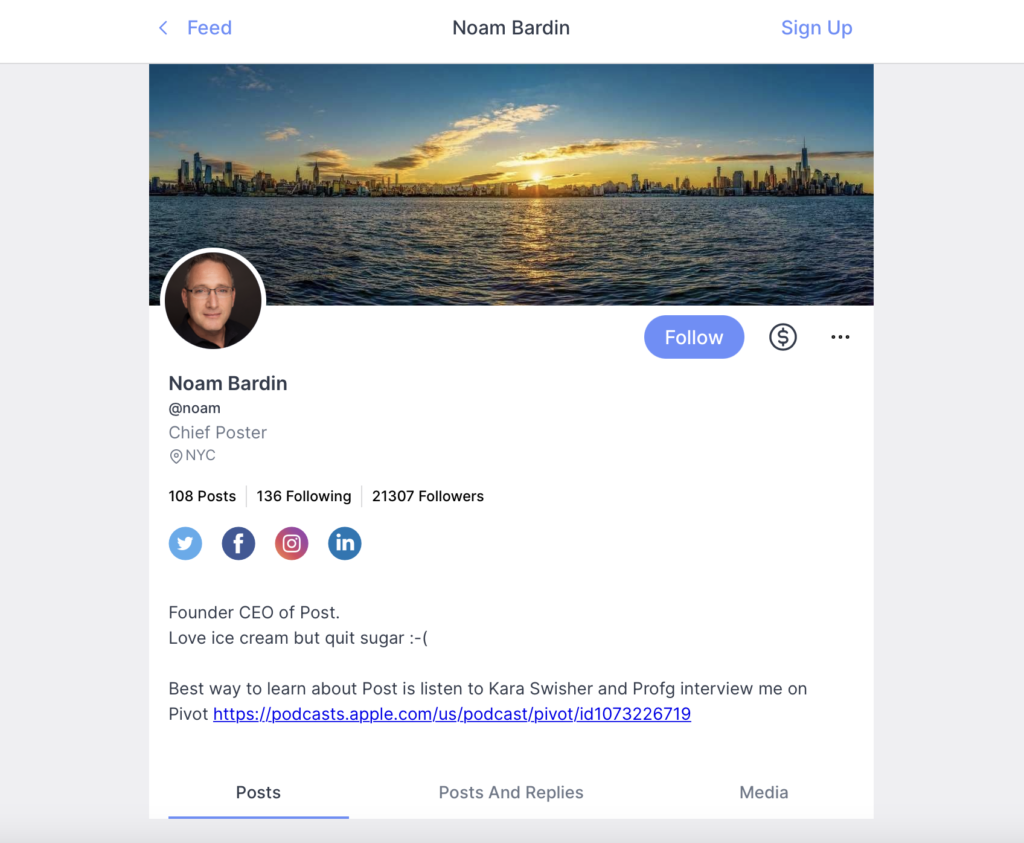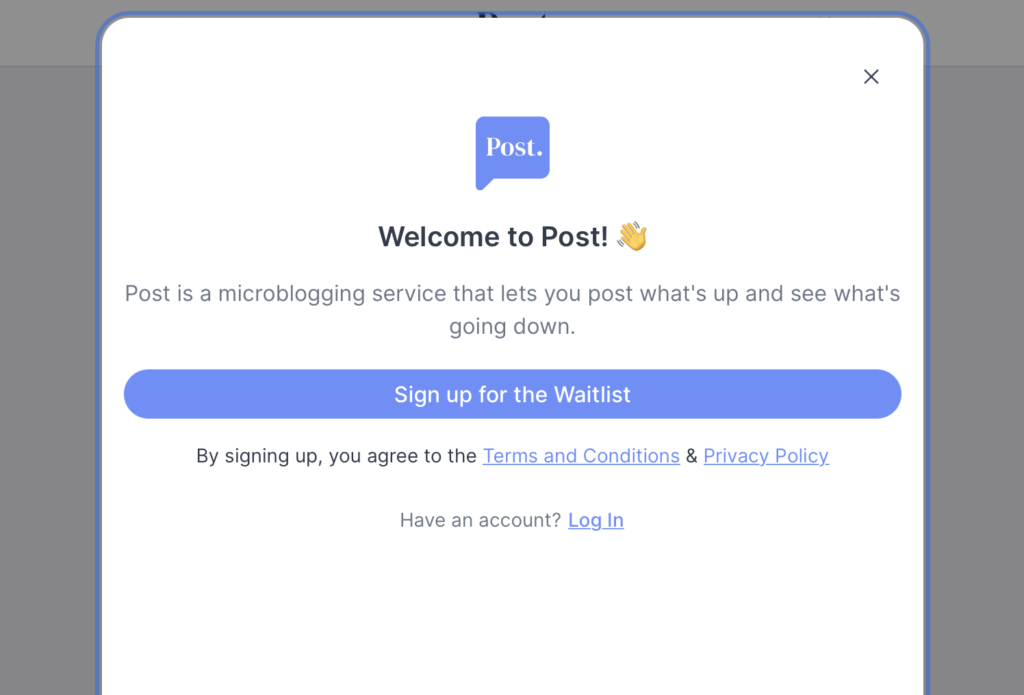Post.news: The unpredictability of Elon Musk has opened up reflections in many Twitter users and a potential space in which new social networks try to slip in to exploit the apparent vacuum and gain the following they need to climb the market.
Between Reddit, Plurk, Parler, Truth and Mastodon, another platform is trying to draw the joker by promising something different.
This is Post.news, a reality that, as its name suggests, puts information at the centre of its interest, intending to go beyond the logic of a magazine subscription (which, instead of encouraging the curious, discourages them with an overall formula that often does not satisfy the user) in favour of individual articles, which have to be paid to read, to make it easier for authors to write subsequent ones.
Exploiting Twitter’s open space
Over the last few days in the United States, Post.news has been at the centre of the debate, and it is striking because, for the time being, it is a social that does not exist. Launched hastily and prematurely precisely with the hope of finding proselytes for spreading anti-Twitter sentiment, Post is a website available only for the American market whose access is deliberately slow to avoid sudden downs. As of 4 December, 108,000 accounts are active for the beta version, and 383,000 are on the waiting list. “Those looking for a full product will have to wait. It’s OK to take a break and come back later because betas aren’t for everyone,’ suggested Noam Bardin, the 51-year-old founder and former CEO of Waze, the Israeli-designed mobile street navigation app that he led from 2009 to 2021, including its sale to Google in 2013 for $1.1 billion.
Remember when social media was fun, introduced you to big ideas and cool people, and actually made you smarter? Remember when it didn’t waste your time and make you angry or sad? When could you disagree with someone without being threatened or insulted? We want to bring that back with Post.’ Bardin wrote in a message shared on his account, followed by over 21,000 subscribers. Post is designed to ‘give back a voice to the marginalised majority’, which Bardin identifies as ‘that 75 per cent of users who are subscribed to Twitter but do not share tweets’. Words that outline freedom of speech are subject to content moderation, which remains vague at the moment as it needs more details. What is certain is what Post does not want to be: no dependence on advertising (hence on companies), considered one of the evils of today’s virtual marketplaces.

The newspaper of the future is a feed
But why subscribe to Post.news and, more importantly, what can one do on this social network? Write posts with no character limit, comment on the posts of others, and like content that can also be republished. And again, you can tip the most esteemed creators or those who propose engaging content and, above all, buy individual articles from different news providers so that you can access multiple perspectives, not just those to which you subscribe. The publishing aspect is the one dearest to Bardin, who is convinced that ‘the newspaper of the future is a feed, which must be easy to access for users and profitable for publishers’. This is an old point, even though journalists and publishers are still hunting for winning formulas for publishing digitally.
One of Post’s priorities is to create a civilised place, which is why the team is focused on operational tools, hiring and training people, reporting posts, blocking, muting, and fine-tuning keywords for comment moderation. An obligatory step to accommodate the eventual mass of interested parties, with the goal within a year to manage 50 million daily active users. An ambitious goal that passes through agreements with publishers, with Reuters currently being the only media outlet to regularly publish news on Post. Those shared so far are the news that can be accessed for free on the British news agency’s site, so to get users to pay Reuters, others will have to reserve exclusive content for Post or something similar.
A Silicon Valley bigwig is behind the project
Turning the spotlight on a social network that is taking its first steps was the decision to finance the project by Andreessen Horowitz, one of Silicon Valley’s leading venture capitalists. Already a visionary with Facebook, Instagram, Slack and Pinterest, A16z (the acronym by which the company is known) also financed Musk’s acquisition of Twitter, putting up $400 million.

“The Twitter operation is separate from Post and the choice of Andreessen Horowitz can be explained in a simple way: they were the quickest to decide to bet on our project, with their money coming to us within 7 days,” said Bardin.
The amount of funding has not been disclosed so far, but supporters of the project include Scott Galloway, professor and tech market expert at New York University. In contrast, consultants include famous journalist Kara Swisher, who has covered technology and digital for the Wall Street Journal, Washington Post, Recode and New York Times. The cards on the table for Post to create something different seem to be there. Still, the enormous difficulties that new socials (apart from TikTok) encounter each time in challenging the usual ones force us to put aside easy enthusiasm to see if Bardin and associates will be able to keep their promises and create a valid and effective alternative.



